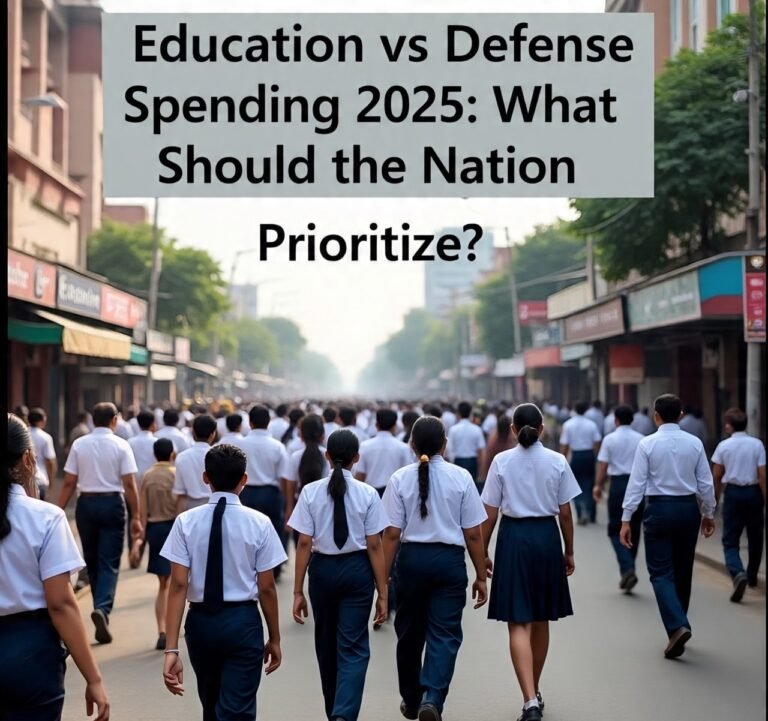Vietnam English Teachers Are in High Demand – But The Real Story Might Shock You

Inside Vietnam English Teachers Scene
Vietnam. Land of noodles, motorbikes, and… English teachers.
Yes. A lot of them. From everywhere.
In the last decade, Vietnam has been on a hiring spree for foreign English teachers. Schools, language centers, even kindergartens. Ads screaming “Urgent!
Native speakers needed!” or “Immediate start! Great salary!”. The tone almost sounds desperate. And in many ways, it is.
This demand isn’t coming from nowhere. Vietnam’s economy is growing. The middle class is expanding fast. Parents want their kids to learn English because it’s seen as the golden key – better jobs, more opportunities, maybe even studying abroad.
For companies, English means global reach. For students, it’s survival in the future job market.

So what happens? The floodgates open. English teachers come in from the US, UK, Canada, Australia, South Africa, New Zealand. But also from non-native countries — Philippines, Eastern Europe, Africa, South America.
At first glance, sounds amazing. People get jobs. Students get teachers. Win-win, right?
But there’s a flip side. And another. And another.
This frantic hiring — this almost “anyone will do” attitude — might be good for filling classrooms fast, but it’s also a warning sign. Especially for native teachers who expect stable careers, high salaries, and consistent demand.
Why Vietnam is Hiring So Desperately
First thing. There’s not enough local supply.
It’s simple math. The number of qualified Vietnamese English teachers is growing, yes, but nowhere near fast enough to meet the insane demand in schools, language centers, and even private tutoring.
Parents don’t want just “someone who can teach English”. They want foreign faces. Preferably white faces — let’s be honest, there’s still that bias in hiring here. It’s not pretty, but it’s true.
Marketing matters. If a school can show a smiling American or British teacher in its brochure, they can charge higher tuition fees.
Then there’s the “boom factor”. English centers on every corner. Smaller towns now also want foreign teachers because parents see what the big cities are doing.
The Ministry of Education also pushed English into more school curriculums. Even kindergartens in some urban areas have English programs now. The push is huge. But the local teacher pipeline? Thin. Very thin.
Another thing. Foreign teachers rotate out fast.
Vietnam is not like your forever home for most people. Teachers come for 6 months, 1 year, maybe 2 or 3 years. Then they move on — to Thailand, to Korea, back home, or to another career entirely.
Every time one leaves, the school has to scramble to replace them. This creates the illusion (and reality) of constant shortage.
Also… wages here are competitive for Vietnam, but not high compared to some other countries. So a lot of top native teachers pick Korea, Japan, or UAE instead.
Vietnam often attracts the younger, more adventurous crowd. Many are good, some are just here for the travel life. This inconsistency means schools are always hunting for the next one.
And then there’s the Covid rebound.
When borders shut in 2020, Vietnam lost most of its foreign teachers almost overnight. After reopening, the demand went wild.
Suddenly, they needed to refill hundreds — maybe thousands — of positions. And fast. Which is why job ads still read like “please come, we’ll hire you yesterday”.
So that’s the background. But hiring this desperately?
It has consequences — good and bad.
The Positives of Vietnam’s Desperate Hiring for Foreign English Teachers
More Opportunities for Foreign Teachers
If you’re a foreigner looking for English teacher jobs in Vietnam — the door is wide open. Really wide. You don’t even need to be a “career teacher” in many cases. A TEFL certificate, a degree (sometimes not even that if you’re in a smaller city), and you’re good to go.
Example — Jake from Manchester came to Vietnam just to travel. Ended up staying for two years, teaching in a language center in Hanoi. No prior teaching background. He learned on the job, made decent money, and still says Vietnam was one of the best times of his life.
How Vietnam Education System is Much Better Than India’s in 2025 (Shocking Truth Revealed!)
For native speakers, it means you have bargaining power. You can choose where to work — big cities like Ho Chi Minh or smaller towns where cost of living is lower.
And because schools are desperate, you can sometimes negotiate better hours, free housing, or even flight reimbursement.
Students Get More Exposure to Real English
Having a foreign teacher in class changes the energy.
Students hear real pronunciation. Real slang (sometimes too much). Real speed. This is something even highly skilled Vietnamese English teachers can’t perfectly replicate because it’s not their mother tongue.

Vietnamese kids — especially those in public schools — might never hear native English outside of the classroom. A foreign teacher brings that in. Over time, this can make a big difference in listening and speaking confidence.
Boost for Vietnam’s International Image
Every foreign teacher who works here is also a mini-ambassador.

They share photos, stories, videos of their lives in Vietnam. They post about the students, the food, the landscapes.
This builds Vietnam’s image as a friendly, safe, welcoming country for expats. And that attracts more foreigners — not just teachers, but also tourists, investors, and entrepreneurs.
Faster English Learning in Urban Areas
With the flood of teachers, cities like Hanoi and HCMC have seen English education improve in speed. Kids in international schools can graduate fluent. English centers offer IELTS, TOEFL, business English — all taught by people who use English daily.
Parents with money are thrilled. They can buy their child the kind of English education that might have been impossible here 15 years ago.
Economic Boost
Let’s be blunt — foreign teachers spend money. Rent. Food. Motorbikes. Trips to Ha Long Bay. All that cash goes into Vietnam’s economy. Some open small businesses, cafes, or tutoring services on the side.
Cultural Exchange
It’s not just about English. Students learn about other countries, festivals, customs. And teachers learn about Vietnamese culture. Sometimes friendships last a lifetime. Sometimes even marriages happen.
So yeah — there’s a lot of upside.
But you know what’s coming. Every coin has two sides. And the other side here?
It’s not so shiny. Especially if you’re a native teacher thinking long-term career.
The Negatives of Vietnam’s Desperate Hiring for Foreign English Teachers
Lower Standards for Who Gets Hired
Let’s just say it straight. Desperation means schools will sometimes hire… anyone.
Native? Non-native? Doesn’t matter much if they look the part and can stand in front of a classroom. Some are amazing teachers. Others have no idea how to teach, and it shows.
I’ve seen it. Classes where the “teacher” spends more time on their phone than teaching.
Or they turn lessons into storytelling about their travels instead of actual English structure. Fun? Maybe. Educational? Not really.

And for native teachers who are qualified — this is bad news. Because if the school can fill a slot with someone cheaper and less trained, they might do it. Quality drops. Salaries stagnate.
Native Teachers Lose Bargaining Power in the Long Run
Right now, demand is high. So if you’re a native speaker, you can still pick and choose jobs. But markets don’t stay like this forever.
If Vietnam keeps importing teachers at this speed, schools will have a massive supply. Salaries could drop.
The “native advantage” might fade — especially since parents are becoming more open to non-native teachers with good accents.
Imagine — you move to Vietnam expecting 25–30 USD/hour because that’s the “going rate” today. But five years from now? Could be 18. Could be 15. Desperation hiring now could saturate the market later.
Risk to Education Quality
When you hire in a rush, you don’t always check the skills. Some schools barely interview. A quick chat on Zoom, maybe a demo class. Then boom — contract signed.
This means some students get a great teacher. Others… not so lucky. And parents start noticing the inconsistency.
They pay big tuition but the teaching is hit-or-miss. That hurts the reputation of the whole foreign teaching industry here.
Strain on Local Teachers
Vietnamese English teachers often feel overshadowed. They work years to get certified, to perfect their grammar knowledge. But then a foreigner shows up, maybe with zero teaching degree, and instantly earns double or triple their salary.

That creates resentment. And it’s not good for teamwork inside schools. It also makes it harder for Vietnam to build a strong base of local educators because some talented people give up and switch careers.
Reputation Risks for Vietnam
If word spreads that “anyone can teach English in Vietnam” — well, you’ll get anyone. And not all “anyones” are good for your country’s image.
Parents lose trust. Governments start tightening visa rules. And suddenly, the easy pipeline of jobs becomes harder for everyone.
Short-Term Fix, Long-Term Problem
Desperate hiring solves today’s shortage but doesn’t fix the cause. Vietnam still needs to train more local teachers, improve pay, and create real career paths for the best educators.
If they don’t — the cycle will repeat. Teachers will come and go. Standards will swing up and down. And students will be the ones paying the price.
That’s the raw reality.
Right now it feels like a gold rush. But gold rushes never last.
Impact Analysis: Where This Could Lead
The hiring frenzy isn’t just about now.
The Education System — 5 to 10 Years Ahead
If Vietnam keeps up this desperate pace without building a stronger base of local teachers, the system becomes foreign-dependent. That’s fine in the short term. But it’s risky.
Why?
Because foreign teachers leave. They always have. Turnover is natural — visas end, contracts expire, wanderlust kicks in. Every time someone leaves, a replacement is needed. That’s extra cost, extra admin, extra instability.
In 10 years, Vietnam could have schools that still can’t function without foreign staff. That’s not sustainable. Countries like Japan and Korea invested heavily in training locals over decades — and even they still need foreigners. But they have a stable backbone.
Native Teachers’ Future
For native English speakers, the next decade in Vietnam could go two ways.
Scenario A: The Boom Continues.
The economy grows, parents keep paying, schools keep opening. Native teachers remain in high demand.
Salaries stay strong, maybe even rise in smaller cities where foreigners are rare. Vietnam becomes a “solid career” destination for expat educators.
Scenario B: The Floodgates Overfill.
Schools bring in more non-native teachers with near-native fluency. Parents adapt to it. Salaries for native teachers drop. Suddenly, you’re competing not only with other natives but with well-trained Filipinos, South Africans, even Vietnamese who’ve studied abroad. You’re no longer the golden ticket — just another option.
If B happens? New arrivals might be fine for a year or two. But long-term foreign teachers could see their careers here slowly squeezed.
Students’ Learning Outcomes
Here’s where it gets tricky. Desperation hiring can give students fast access to English, but quality control is the question mark.
Best case: Students get passionate, skilled foreign teachers who inspire them to actually use English in real life. Their speaking improves, their confidence skyrockets, they compete internationally.
Worst case: They get inconsistent teaching. High turnover. A teacher they like leaves mid-semester. New one comes in, different style, starts over. Progress stalls. And parents start wondering if all that tuition money was worth it.
Vietnam’s Global Education Reputation
The more the word spreads that “Vietnam is the easiest place to get an English teaching job”, the more mixed the teacher pool becomes. Some amazing, some average, some… let’s just say not great.
Ten years from now, this could go two ways:
Positive Reputation: Vietnam is seen as a hub for high-quality, immersive English learning. Students from other ASEAN countries even come here to study.
Negative Reputation: It becomes known as the “backpacker teaching” country — cheap labor, inconsistent quality, not taken seriously by education professionals abroad.
Which one happens depends on whether Vietnam’s education authorities step in to set and enforce real hiring standards now, not later.
Economy & Job Market Ripple
Foreign teachers bring in money, yes. But they also take a slice of the education sector that local teachers could fill if trained and paid better. If Vietnam keeps the balance wrong, it might slow the growth of a strong domestic teaching profession.
That’s fine when the economy’s booming. But if there’s a downturn? Foreign teachers are the first to leave. Then schools scramble, students suffer, and the system is left with holes it can’t patch fast.
Right now, it’s like Vietnam is surfing a huge wave. Feels thrilling. Looks impressive. But a wave eventually breaks. The real question — is Vietnam building a boat underneath, or just riding it until it crashes?
Conclusion & Recommendations
Vietnam’s desperate push to hire foreign English teachers is a story with two sides.
On one side — it’s a door flung wide open. Opportunities for foreigners. A chance for students to meet and learn from real English speakers. Cultural exchange. Economic growth.
On the other side — cracks are forming. Quality control slipping. Local teachers getting sidelined. Salaries for natives at risk of sliding. And the long-term sustainability of this “just hire more foreigners” model… well, it’s shaky.
The problem is simple but not easy. Vietnam wants rapid results. Learning English takes years. You can’t fix the shortage by throwing warm bodies at classrooms forever.
For Vietnam (Policy & Schools)
Invest in local talent — Train more Vietnamese teachers to near-native fluency. Pay them better so they stay.
Set higher entry standards — Require real teaching skills, not just a passport and a smile. This protects students and the country’s reputation.
Support foreign teachers properly — Housing help, proper contracts, cultural training. Happy teachers stay longer.
Balance the mix — Foreign teachers should complement, not replace, skilled local educators.
For Foreign Teachers Thinking of Coming to Vietnam
Don’t assume the boom lasts forever — What’s true today might change fast. Be ready.
Have real skills — If you want to stand out when the market gets crowded, bring more than just your accent. Learn methodology, classroom management, exam prep.
Pick your schools carefully — Desperate hiring means some places will promise anything to get you in. Check contracts. Ask other teachers.
Think about the students — If you’re only here for the paycheck, it shows. And students feel it.
Right now, teaching English in Vietnam feels like a golden ticket.
Jobs everywhere. Schools calling. No shortage of offers. But gold rushes always look brightest before the dust settles.
Vietnam can either use this moment to build a stronger, more balanced education system… or ride the wave until it crashes.
And for teachers — this is your time. But only if you see the bigger picture.
Also read: Education Focus -India’s Wake Up Call (and the World’s Too)






